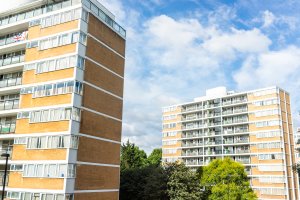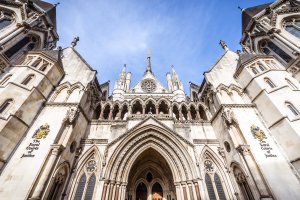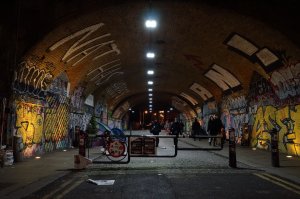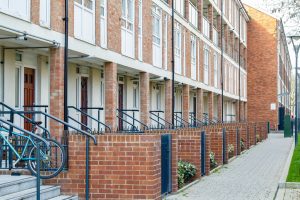No recourse to public funds in the time of Coronavirus
William FordTable of Contents
Anyone working in the field of social welfare law will be familiar with the term “no recourse to public funds”. A significant proportion of migrants in the UK who have leave to remain, will have such subject to a condition that they have no recourse to public funds (“NRPF”).
Persons who are subject to immigration control (meaning they need a visa to enter or remain in the UK) are generally restricted from accessing public funds, although they are often permitted to work in the UK. Common examples of migrants who are subject to the NRPF condition are as follows:
- Unaccompanied Asylum Seeing Children (UASC) Care Leavers. These are UASC who have reached 18 but are yet to receive a determination of immigration status in their favour.
- ‘Zambrano’ carers. These are primary carers of British citizen children, where the primary carer is not an EU or European Economic Area (“EEA”) national.
- People in the UK on a spousal visa, student visa, or who have limited leave granted under family or private life rules.
It should be noted that the entire NRPF regime is currently the subject of a legal challenge in the High Court. A final hearing is listed for 6-7 May 2020.
What are Public Funds?
The definition of what are public funds is set out under s115 of the Immigration and Asylum Act 1999 and paragraph 6 of the Immigration Rules in an exhaustive list. Public funds include the following:
- Disability benefits, including Personal Independent Payments, Disability Living Allowance, and Attendance Allowance.
- Child Benefit
- Housing Benefit
- Social Fund payments
- Tax Credits
- Income-based Jobseeker’s Allowance
- Income-based Employment and Support Allowance
- Income Support
- Council Tax Reduction
- State Pension Credit
- Universal Credit
- Access to homeless assistance under Part VII of the Housing Act 1996
- Access to social housing (either with a local authority or a housing association) under Part VI of the Housing Act 1996
For a comprehensive list see paragraph 6 of the Immigration Rules.
What are not Public Funds?
The simple answer is that any publicly funded service that is not on the list referred to in paragraph 6 of the Immigration Rules can be accessed by a person with NRPF without breaching their immigration conditions. Common examples include:
- Support under s17 of the Children Act 1989. This places a duty on local authorities to provide support in the form of accommodation and subsistence payments when necessary to safeguard the welfare of a child in need. This is not restricted simply because a person is subject to a NRPF condition.
- State School education. Children with NRPF can receive a state education whilst they are of compulsory school age.
- Free school meals in reception, year 1, and year 2.
- Legal aid
- NHS Treatment
- Social services assistance
Change of conditions
The Immigration Rules provide that where leave to remain has been granted in various different scenarios, and would normally be subject to a NRPF condition, the Home Office has a discretion to not to apply that condition, or to subsequently vary it.
Home Office guidance confirms that the discretion not to impose, or to lift, the NRPF condition will apply where the applicant:
- has provided satisfactory evidence that they are destitute, or there is satisfactory evidence that they would be rendered destitute without recourse to public funds; or
- has provided satisfactory evidence that there are particularly compelling reasons relating to the welfare of a child on account of the child’s parent’s very low income; or
- has established exceptional circumstances in their case relating to their financial circumstances which require the no recourse to public funds condition code not to be imposed or to be lifted”
Impact of Coronavirus Crisis
The Home Office guidance emphasises that it is the responsibility of the person seeking to lift the NRPF condition to prove that they meet the relevant test. However, since the Coronavirus Crisis the Home Office has provided further guidance on applications for a change of conditions, which allows Home Office officials to exercise flexibility in requiring further additional evidence.
The Home Office recognises that in the current crisis repeated requests for further evidence could result in people having to endure potentially long periods of destitution. Decision makers can therefore grant a change of conditions request without seeking further additional evidence or documentation if satisfied that reasonable evidence has been provided in the round.
Examples of types of cases where this might apply include, single parents who cannot work due to childcare, people who are at risk of eviction or have been evicted, a parent who is the primary carer of a child unable to attend school due to COVID-19 restrictions and is eligible for free school meals, or where there is evidence of vulnerability.
Challenging Home Office decisions
If the Home Office refuse an application to lift a NRPF condition it may be possible to challenge that decision by way of an application for Judicial Review at court. In this scenario it is worth seeking legal advice on the options open to you.
This article was written by William Ford, a partner in the Housing and Social Care department and head of strategic litigation.
Share this article
Contact
Contact us today
For a free initial conversation call 020 7485 8811
Email us Send us an email and we’ll get back to you
More from WilliamVIEW ALL
- 21.4.2023
Success in Court of Appeal in child disability...
The Court of Appeal has today handed judgment in the case of Harrington v Secretary of State for Work and...
Read more - 20.1.2023
High Court finds Westminster Council’s Housing Scheme...
Westminster City Council’s housing allocation scheme found to be unlawful The High Court has today handed down judgment finding...
Read more - 14.11.2022
Housing allocation case questions lawfulness of council’s...
Until February 2022, the social housing allocation scheme for the London Borough of Newham allowed people who lived outside the borough...
Read more - 5.8.2022
Legacy benefits uplift: appeal granted by Court of...
On 18 February 2022 the High Court dismissed the case brought by Osbornes on behalf of 4 claimants challenging the governments failure to...
Read more - 5.11.2021
Council overturns unlawful housing policy
Homeless teenager claims victory for more than 1,200 homeless people after forcing council to overturn unlawful housing policy A homeless teenager...
Read more - 3.9.2021
Homeless Teenager takes London Council to High Court
A homeless teenager is taking a London council to the High Court for ‘unlawfully’ banning hundreds of homeless people from...
Read more - 19.8.2021
Housing Disrepair Scandal in South London
Following an investigation by ITV nearly 500 homes in the Eastfields Estate in Mitcham, south London, owned by the housing association...
Read more - 8.4.2021
Council to amend unlawful housing allocation banding process
For the last 8 years Brent Council has stopped the majority of homeless applicants from bidding for rehousing, treating them as ‘...
Read more - 29.1.2021
What does the national lockdown mean for possession...
The coronavirus pandemic has caused disruption to all elements of life, and possession proceedings are no exception. The number of...
Read more - 23.12.2020
EU Nationals with Pre-Settled Status entitled to benefits...
Court Judgment means EU Nationals with Pre-Settled Status can access benefits and housing On 18 December 2020 the Court of Appeal handed...
Read more - 22.12.2020
Young mother secures accommodation after illegal evictions during...
Here at Osbornes we have seen illegal evictions on the increase during this global pandemic. Osbornes have been advising many...
Read more - 22.12.2020
Osbornes applying to Supreme Court in housing possession...
In the case of Gateway Housing Association –v- Begum (2) the Court of Appeal recently decided that a tenant must leave...
Read more - 22.12.2020
Eviction from home of vulnerable man during lockdown...
Osbornes were instructed just before the lockdown to prevent the eviction of a vulnerable man with capacity issues. He had...
Read more - 22.12.2020
Housing disrepair issues resolved after three years
Osbornes were instructed on behalf of a disabled tenant who had been decanted from her temporary accommodation for some three...
Read more - 24.11.2020
Is the delay in the Renters Reform Bill...
There have been issues tenants have faced for a long time before pandemic; namely no fault evictions and the other...
Read more - 20.11.2020
Up Up and away to the First Tier...
This year we assisted in written representations for a welfare benefit case in the Upper Tribunal. This is a Housing...
Read more - 20.11.2020
You are homeless because you are in shared...
It is well established that shared facilities are not suitable for families with children as long term accommodation. The client...
Read more - 27.5.2020
I am vulnerable and homeless but the Council...
Homelessness law and procedure can be very complicated. We hope this blog gives you some helpful pointers but it is...
Read more - 29.4.2020
Case news: Housing benefit decision addresses issue of...
The background You might be forgiven for thinking that the question of whether a course is full time or part...
Read more - 17.4.2020
Harassment and Unlawful Evictions of Tenants during COVID-19...
At these hugely challenging times, I thought it would be helpful to provide some insight for tenants facing harassment and...
Read more - 31.3.2020
The Coronavirus Act 2020 and Social Care
The Coronavirus Act 2020 (“the Act”) came into law on 25 March 2020 and passed sweeping emergency legislation that is unprecedented in peacetime....
Read more - 30.3.2020
I have a disrepair issue can I withhold...
Withholding rent is not your best course of action. I see the logic in using the non-payment of rent as...
Read more - 27.3.2020
COVID-19 – the impact on landlords of residential properties...
From the 26th March 2020, landlords will have to give their tenants 3 months’ notice if they intend to seek possession compared...
Read more - 26.3.2020
British child living with her mother in the...
In AH v Secretary of State for Work and Pensions [2020] UKUT 53 (AAC), the claimant and her parents are British citizens. ...
Read more
















